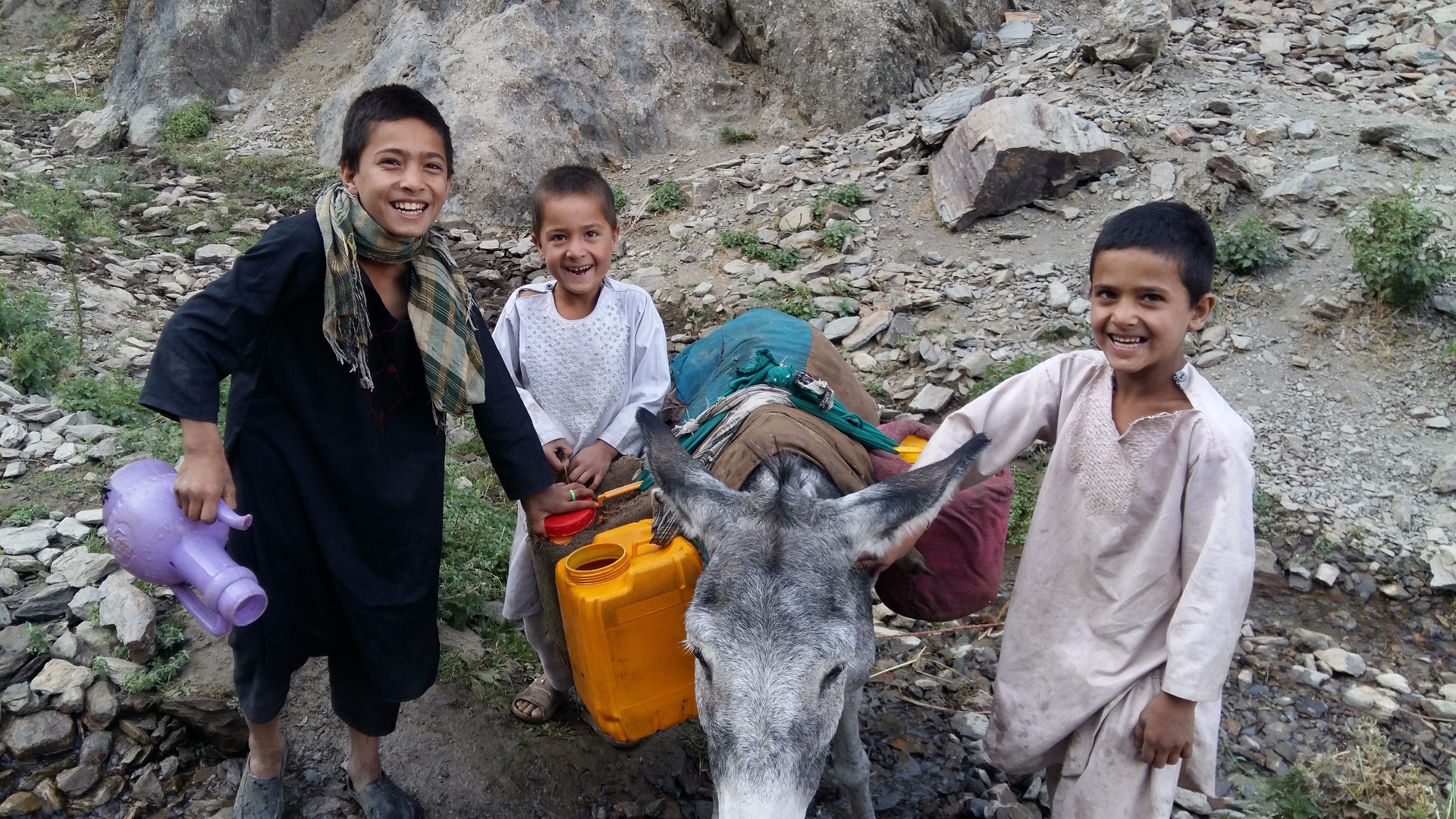A heart free from fear: mine clearance brings safety in Afghanistan
Ali Ahmad lives with nine members of his family in the village of Mula-ee in Shinwari district to the south east of Parwan province. Located at the base of Chitak Mountain, the village has been a strategic military point throughout the decades of conflict in Afghanistan. This has led to the land being contaminated by landmines and other explosive remnants of war.
The impact of this legacy on families like Ali Ahmad’s has been catastrophic. Before HALO’s work to clear the area, Ali Ahmad describes grazing his livestock on the mountain with ‘severe fear in my heart.’ Three members of his village have been killed whilst herding their animals or collecting firewood. However, thanks to funding from the Norwegian Government, The HALO Trust has been able to clear 51,265m2 of land, destroying 17 anti-personnel landmines in the process. For the 130 families living in the village, life has been transformed. This is Ali’s story:
"My name is Ali Ahmad, son of Ali Khan, and I live with nine members of my family in Mula-ee village, where I was born. My household is made up of my wife, four sons, two daughters and my brother. During the Afghan-Soviet War, we were forced to temporarily move to the city of Charikar for our safety but as soon as the Soviet troops retreated we returned home to Mula-ee. Apart from this short period of time, I have lived in the village all my life.
To support my family, I work as a farmer. Mostly I raise livestock; I herd the animals up to the mountains for grazing. Before the mines were cleared, I did this with fear in my heart. In our community, several people have lost their lives or limbs in mine accidents, particularly when crossing the mountain to forage or graze livestock.
In fact, my brother, Ghazi Mohammad, lives with us because he lost his leg in a mine accident. He was grazing his livestock in the mountains when he detonated a mine. His leg was badly injured in the explosion and he had to have it amputated. He became dependent on my family for support but, despite the accident, he still climbs the mountain to graze our 25 animals as well as around 90 animals from the village. In this way, he is able to make some money and help contribute to our household.
Sadly, my brother was not the only landmine victim in our village. Shortly after his accident, three other people also detonated mines when grazing their animals or searching for firewood on the mountain. None of them survived. I know there have also been victims in the villages surrounding ours, especially children. We have also lost countless livestock in mine accidents. This makes it very a hard to survive as we need our animals to make a living.”

It is not only the immediate personal danger of unexploded mines that affects the village, the existence of contaminated land makes it impossible for other humanitarian organisations to access the area and facilitate development. As Ali describes:
“Mines are like a dirty house. If your house is old, muddy and destroyed, no guests will want to come and visit you. But if your house is nice and clean, you will have many visitors. The same goes for contaminated land. If your land is polluted with mines, no humanitarian organisation will want to come and visit you to offer assistance. Only once the land is clean, will they implement development projects.”
HALO’s clearance operations enabled the rural development organisation ‘Al-Emarat’ to begin work in the village. They helped with poultry and livestock, constructed a new road and built a school, reservoir and bridge. They were also able to install communication antennas on the mountain nearby, creating jobs for local people. This demonstrates how, by making land safe, long-term sustainable development can be achieved. On a personal level, Ali Ahmad describes how the clearance activities have benefitted him and his family.
“Now that HALO has cleared the land on the mountain, my family is able to travel in safety. This summer, we put up a tent on the mountain above Chinadara village. Before, I would never have let my children play on the mountain, I would have been afraid to let my animals roam free—my heart would have been consumed by fear. Today I do not have to worry, I do not have to worry that they will step on a landmine. On behalf of our community, I would like to thank The HALO Trust. We are finally able to enjoy our land. We hope that one day all of Afghanistan will be free from the impact of mines.”
Although 80% of Afghanistan is now cleared of mines, there is still some way to go to achieve the aim of a mine free Afghanistan by 2023. Rural areas like the village of Mula-ee are the cornerstone of this country and with your support we can help create a secure future for more people like Ali Ahmad.


